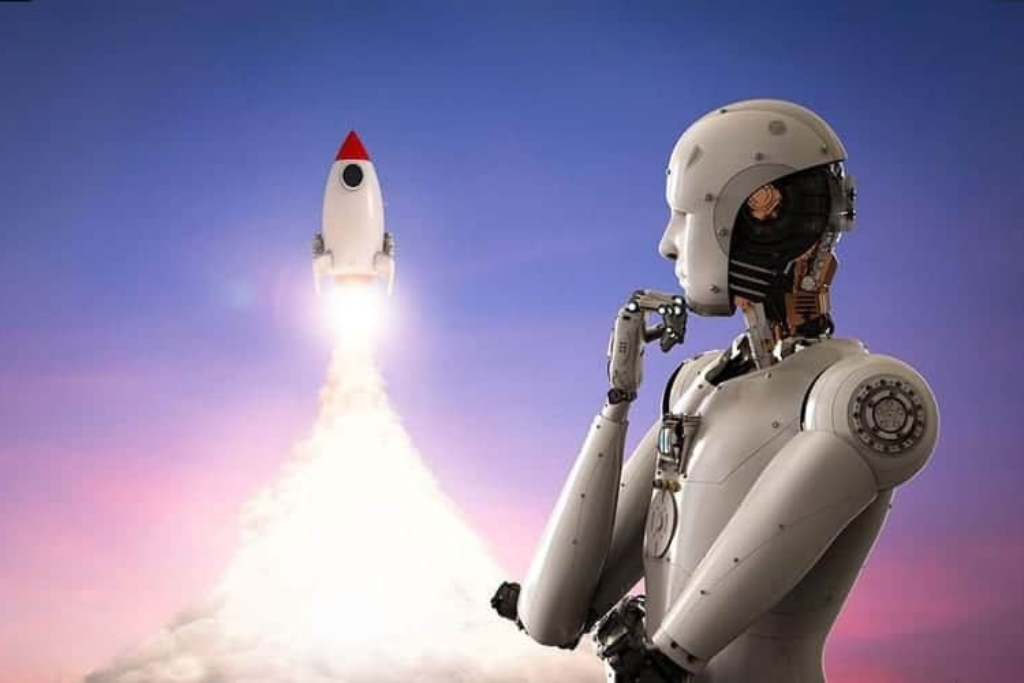As humanity pursues space exploration beyond our solar system, artificial intelligence is becoming increasingly vital to mission planning and optimization of spacecraft systems. Machine learning algorithms can analyze sensor data automatically to operate spacecraft autonomously – meaning they can reach their destination without constantly communicating with Earth.
Robotics
One of the greatest challenges in space exploration is ensuring astronauts’ safety. Astronauts may be exposed to harmful radiation levels and microgravity; their day/night cycles accelerate rapidly; they face isolation, limited medical supplies, and communication delays with mission control centers on Earth; all factors which must be managed effectively for successful space missions. Robotics offers one potential solution.

AI technology can improve astronauts’ well-being by monitoring vital signs and identifying risks or anomalies to prevent disease. Additionally, it can optimize supply systems and enable closed-loop recycling programs to minimize waste production while decreasing dependence on resupply missions during extended space travel periods.
AI plays an integral part in improving robotic spacecraft navigation. AI algorithms enable robots to autonomously prioritize exploration targets without waiting for instructions from mission control, making complex terrains like Mars more easily explored with greater detail and efficiency. They can even identify mineral or water sources on planet surfaces while aiding mining operations on asteroids or interplanetary travel. AI-enabled satellite startups capture and process massive amounts of data which power next-gen remote sensing technologies.
Astronomy
AI is increasingly being employed in space exploration applications, from virtual simulations to autonomous navigation systems for spacecraft and probes. Companies like NASA’s Jet Propulsion Laboratory use machine learning algorithms to model mission parameters efficiently to develop plans for future missions more quickly; other uses include using Mars rovers’ images gathered to identify mineral deposits on Mars.

Artificial Intelligence technology also makes it possible to process meteorological data sent by satellites quickly and efficiently, detecting key shifts such as changes in wind speed.
Interstellar travel requires extensive periods, making the efficiency of spacecraft systems and resources all the more essential. AI-based systems offer closed-loop recycling and continuous monitoring that minimize waste while eliminating external resupply missions. They can even assist in forecasting space weather events such as solar flares or geomagnetic storms which could impact communication satellites or power grids.
AI in Space Exploration
Artificial intelligence is being leveraged in space exploration by using it to monitor and interpret large amounts of data collected from satellites, probes, and other space instruments. Furthermore, new technologies that could help us explore our universe more efficiently are also being created using this approach.

AI algorithms can assist astronomers in better comprehending the behavior of stars and galaxies, as well as identifying planets using both live data from satellites and previously collected information from space probes. Such insights will enable future manned or unmanned space missions to reach farther, more remote destinations.
AI is also revolutionizing space exploration by optimizing resource use during long-duration missions. By tracking consumption patterns and anticipating potential issues, these systems ensure optimal resource utilization while decreasing the frequency of resupply missions.
Space Medicine
Space medicine is one of the most complex fields to practice for human beings, requiring knowledge in both extreme environmental medicine and engineering. This fieldwork includes experiments in exercise laboratories, altitude chambers, man-carrying centrifuges, and analog spaceflight environments.

AI technology is also being employed to ensure astronaut safety during long-duration space missions. The technology helps monitor crew health, detect risks or anomalies, and offer real-time medical assistance services.
AI can improve robotic spacecraft autonomy, allowing them to make vital real-time decisions without waiting for Earth’s commands, which could be especially useful on Mars, where communication delays may be severe. “Future technologies of the world” are continuously pushing the boundaries of space exploration, and advancements in AI are playing a significant role in enhancing the capabilities of robotic missions, enabling them to operate more efficiently and adaptively in distant and challenging environments like Mars.
